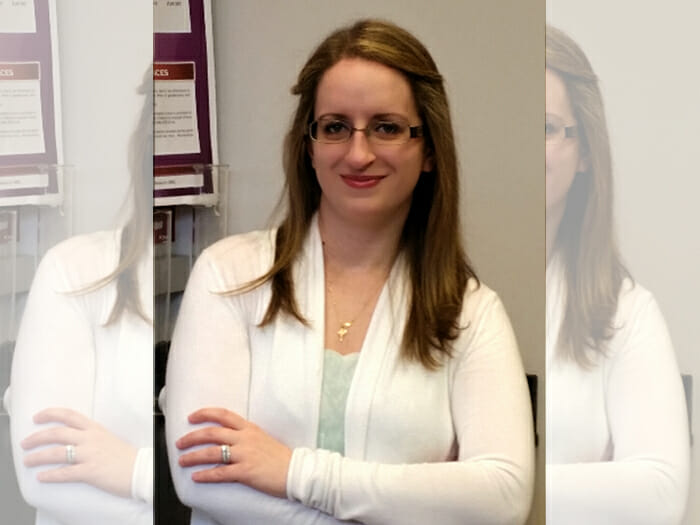 College of Staten Island alumna Caroline Arout has been accepted for a post-doctoral position with Yale University beginning the summer of 2014.
College of Staten Island alumna Caroline Arout has been accepted for a post-doctoral position with Yale University beginning the summer of 2014.
When Arout began her studies as an undergraduate at CSI in 2003, she claims that she had no intention of moving on to post-graduate work, let alone earning a PhD. She first considered business coursework and later switched to nursing, and while she enjoyed her studies and performed well, she admits that something was missing. “I felt like I was looking to get a degree just for the sake of it, and that if I continued with that mindset, I wouldn’t be happy in the long run. I enjoyed Psychology, so I decided to commit to an education in a field I knew I’d be happy in.”
Arout eventually changed her major to Psychology.
In 2006, she was encouraged by CSI Professor and Chair of the Psychology Department, Dr. John Lawrence, to work in the neuropsychology-focused lab of Dr. Benjamin Kest. After that, the rest came easily.
“I loved neuroscience, I enjoyed working with Dr. Kest and found his work in opioid hyperalgesia (the increased pain sensitivity that results from opioid treatment) fascinating, so that helped make up my mind.” She called working with Dr. Kest “phenomenal” and credits him with sparking her love for neuroscience. “He taught me how to be an independent, confident researcher, to never question myself.”
After finishing her senior year at CSI working in Dr. Kest’s lab and graduating in 2007, Arout applied for and was accepted to Queens College’s General Psychology Master’s program. It was then that she and Dr. Kest started collaborating with CSI Associate Professor of Psychology, Dr. Dan McCloskey, working on her first independent project—researching the molecular basis of morphine hyperalgesia. She continued on to pursue a PhD in Neuropsychology from The City University of New York’s Graduate Center.
“We studied the way morphine works in our brain—the way it affects pain processing,” she said, explaining her second research project that would eventually become her PhD dissertation. “I wanted to find out how receptors in the brain and spinal cord contribute to morphine hyperalgesia.”
After receiving her PhD, Caroline focused her attention on teaching her experimental Psychology 330 class at the College of Staten Island, and began searching for possible post-doctoral positions when she noticed an opportunity at Yale, sponsored by the National Institute on Drug Abuse. She wanted to continue “studying drugs of abuse, how they affect the brain,” she said of the motivations behind her search. “The brain is so mysterious,” she continued. “There is so much we don’t know about it—it’s this bundle of cells that determines every aspect of your life. I am fascinated by how drugs can change it.”
After a short wait, Arout soon found out that she was chosen to work at Yale’s Veteran’s Hospital campus in West Haven, Connecticut this summer. There, she will contribute to clinical trials of treatments for nicotine and alcohol abuse, and she hopes to use her opiate expertise to be able to focus on treatments for veterans who are suffering from chronic pain.
She admitted that she was a little nervous about applying to an Ivy League university. “When I applied, I was intimidated because it was Yale, but it felt really good to find out that they were as excited about me working there as I was—I felt truly validated.”
The advice that she would like to impart on future students is to “never sacrifice your dreams in order to keep up with everyone else’s. What I do matters—it was worth the extra time and effort. CSI and CUNY have some of the best and brightest students and faculty around, there is no reason we shouldn’t do what makes us happy.”














